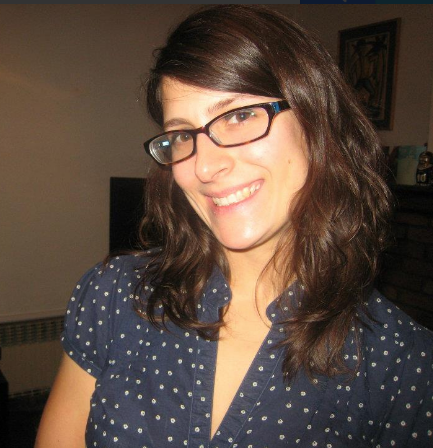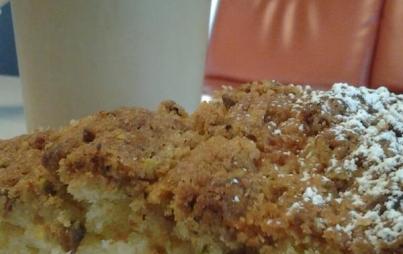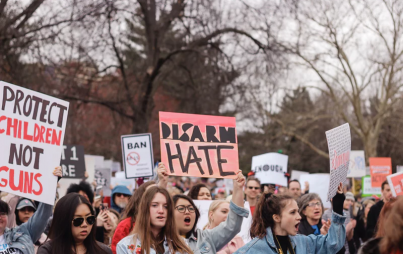
Women represent a mere 24% of all STEM (Science, Technology, Engineering and Math) fields, surfacing a not-so-shocking gender gap. While new initiatives are being fostered every day from grants and research to resource accessibility and programs dedicated to bolstering females into these better paying (!) occupations—33% to be exact—these lackluster numbers comprise the current landscape, and boy, is it bleak. We sat down with an inspiring environmental scientist and PhD candidate—Melissa Koberle—to discuss her journey into this male-dominated field and how feminism has always been her foundation.
You're an environmental scientist. What does that mean exactly? How do you spend your days?
My specialty is in hazardous waste delineation and remediation. First you have to categorize the extent of a site's contamination: the source, how it's migrating underground, the potential ecological and human risks, etc. Once you've reached that point, you discuss different remediation technologies (such as in situ chemical oxidation, which reduces contaminants in soil or groundwater or excavation, which means hauling the contaminated soil to a landfill) to clean it up or simply reduce the current risk and exposures that are currently happening.
Obviously there are a lot of facets to environmental science, even a book-head like me knows that. What's your particular focus?
I've now focused my entire my career on sustainable remediation—I'm fostering methods that not only have a smaller impact on the environment, but also the local community and society as a whole. We also think about how our clean-up efforts could help stimulate the local economy.
Is science your "calling?" Did you always know you'd work alongside Mother Nature?
Actually no, but I'd say it's always been related to my life-view—I've always really enjoyed nature. Maybe all started with the Girl Scouts! (laughs.) We always went camping, we would name the plants together, clean up the trash around the neighborhood. I always had a connection with the environment. I want to make sure it's being respected and taken care of—it's important for future generations. I think I've had this holistic view my entire life.
Why do you think you were so drawn to advocating for women?
I got picked on a lot when I was little—high school was really rough for me. My family was kind of broken up when I was small and I learned you had to keep pushing on. I think I got that from Marylu [my mother] and even my grandma! Just because my dad wasn't present in day to day life, doesn't mean that I couldn't be fulfilled. I grew up surrounded by strong women—my mother, grandma, me, my sister, my aunt—we all lived together, it was estrogen mania. It was intense, but I have a passion for being a woman! Girl Scouts was also really pro-women, pro-leadership. I feel I am equal with men so, if it doesn't feel that way for other women in the community I want to be part of the movement that helps them get to that point in their lives. I think the real connection here is that equal pay; but women’s rights are also about social justice, which comes through with my dissertation studies. I'm evaluating impacts on the community and society from remedial activities.
Some stats say only 24% of the environmental science field is occupied by women. Have you ever felt hemmed in by your gender by pursuing a career in science?
I really don't feel that being a woman hinders my advancement or participation in my career—at all. I've moved up very fast for my age and I've gotten some great opportunities. But when it comes to women in the head positions at a firm—that president/CEO role, I think that could improve.
I know you're perpetually swamped with your PhD and working full-time, but what are you listening to these days?
Oh my god, I don't even have time because of school and my dissertation! But I listen to NPR all the time and I really like the National—they're my new favorite band. One of my new jams is also Mike Snow.
What's your dissertation about?
Sustainability is a very complex concept that we're evaluating over and over again. Right now we are coming up with methods to evaluate what the impact is to the economy and society through remedial activity. Sustainability has three legs: environment, economy, and society—we're trying to make sure these three legs are balanced. As a general population and society we basically just think about the environmental impact. While that's a good start—and one of the easiest way to incorporate this awareness into our lives—my field is really studying a much bigger picture, in terms of how we're impacting everything else. The tools to do that however, aren't available right now, so I'm trying to help build those tools and methods that other environmental scientists and remediators can use.
Another Ravishly editor and writer, Nikki, recently wrote a piece on the seeming conflict between marriage and feminism. I know you consider yourself a feminist and you're also happily married—do you ever feel this conflict inside you? Like you've let your inner Grrrrrl down?
If your partner enables you to be the woman you want to be, I don't see why it would be a negative impact to your womanhood to get married. I feel like Austin is my biggest fan and supporter—there's no way in hell I'd be where I am without him, I believe that whole-heartedly. There have been so many times I wanted to give up or second-guessed my intelligence or passion and he's always been there to keep me going and to remind me that what I'm doing is amazing. If I didn't have that in my corner I wouldn't be as successful, motivated or strong enough to take on all these crazy things!
We've also talked about the societal pressure to have children. Once you get married, people make the assumption that kids are the expected next chapter. You're someone who has decided this path probably isn't for you. Do you ever get push-back?
It's interesting because our families are very supportive—they've come to terms with us not having children. Where I get [the push-back] is at work. People are always asking me, 'when are you going to have kids?' I tell them we're not and then their reply is, 'you'll change your mind, you're still so young.' My choice not to have children is none of their business and it makes me wonder, what if I couldn't have kids?' What if that was the reason. How can you say that to someone? You just don't know why they've made that decision.
I've often talked with my own mother about the possibility that I won't have kids and she is less-than-thrilled. What does your mom think about it?
I know that my mom is really sad about it and it's hard for me to know that she's missing out on that. But she's got a grand puppy (laughs.) I just can't imagine having children at all. Whether you have kids or not there are certain things you'll do and not do—anything you do usually means a sacrifice of something else—but there are certain things [Austin and I] simply don't want to give up. Not to mention the world is extremely overpopulated. The resources that are available are extremely limited. The bottom line is, we have a population problem and Austin and I don't want to contribute to that. If anything—maybe ten years from now—we might foster kids. There so many kids out there that don't have opportunities for love and support. There are just so many outlets to help unwanted children. I feel like when I'm done saving my planet, I'm gonna have to save some children!
I don't want to undermine motherhood—there are some women who I really believe it's their calling, they have that amazing instinct, but you can't assume every woman has that. People shouldn't have children because it's "the next chapter" or because society says that's what you should do. Maybe women like me, that aren't interested in motherhood, are like a natural population control thing ... I wonder. That'd be a crazy thing to study.





![By Magicland9 [CC BY-SA 3.0 (https://creativecommons.org/licenses/by-sa/3.0)], from Wikimedia Commons By Magicland9 [CC BY-SA 3.0 (https://creativecommons.org/licenses/by-sa/3.0)], from Wikimedia Commons](/sites/default/files/styles/profile/public/images/article/2019-06/Bell.png?itok=gWp6s_Y0)
